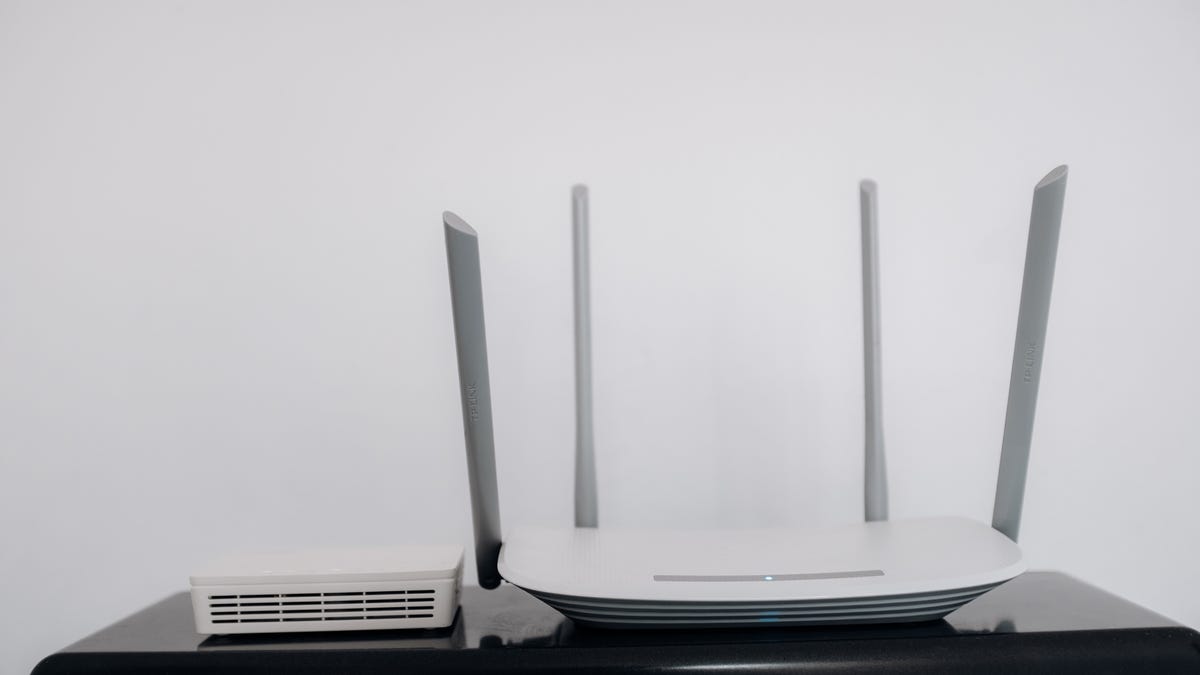New data suggests that renting internet equipment from your internet service provider might provide a smoother internet experience than buying your own router.
A study from Opensignal, conducted between January and March 2025, suggests that internet users renting equipment from ISPs experience better network reliability and consistency than those who own their equipment.
The main reason for that discrepancy? Network diagnostics.
ISPs often include apps, customer care teams or management services to make it easier to diagnose network health. While you can certainly run those diagnostics on your own, Opensignal notes that this customer care goes a long way in maintaining reliable home networks, keeping customers satisfied and keeping them from switching ISPs down the road.
Plus, many ISPs lease high-performing routers with the latest Wi-Fi technology. Frontier Fiber, for example, leases a tri-band Eero Wi-Fi 7 router for some of its fiber plans. That top-of-the-line router is designed to reduce network latency and support multiple devices hogging bandwidth.
Opensignal used two metrics to gauge customer experience with their internet service: reliability and consistency.
Opensignal’s study finds that users renting internet equipment reported overall higher reliability and consistency with home Wi-Fi networks than users who owned equipment.
The reliability metric is the network’s ability to balance multiple devices sharing bandwidth at once (the heavier the bandwidth, the better), without noticeable lag, interruptions or slowdowns. The consistency metric assesses the network’s continuous ability to perform well during everyday tasks.
It’s also worth noting that cable or DSL internet users typically purchase their own equipment to save costs, probably because DSL and cable ISPs don’t typically include free equipment.
On the other hand, fiber internet users frequently lease equipment from their providers because it is often included at no extra cost. The reliability of fiber internet may have contributed to a better overall experience, in this case. (Note: the Opensignal study focused entirely on wired internet services. Fixed wireless services, like what you’d get from a 5G or satellite internet provider, were not included.)
Knowing whether to buy or rent your router is situational and typically comes down to your budget, how much internet speed you really need and what available options you have.
While I often encourage people to buy their own routers to save money on their internet bill, you should invest in that equipment only when it makes sense to do so.
For example, broadband writer and router expert Joe Supan rented his router from Xfinity for six years, racking up nearly $1,000 on top of his monthly bill. Once he invested in his own router, he noticed boosted speeds and reliability, and saved on his monthly internet bill.
On the other hand, if you can use internet equipment free from your ISP, you’ll save money and the headache of dealing with your internet equipment. I have a free gateway device from AT&T, and it saves me a lot of trouble: When I experience a (rare) outage or slowdown, the AT&T app easily troubleshoots and fixes the issue with minimal impact or interruption to my day.
To that end, it was no surprise to me that AT&T received the highest customer satisfaction rating in the Opensignal study — it often places first in customer satisfaction surveys.
Still, if you’re able to invest in your own, high-quality router and you don’t mind tending to your home network’s health on your own, you’ll save yourself some money by not renting equipment and learn some invaluable skills about Wi-Fi troubleshooting in the process.
Read the full article here


